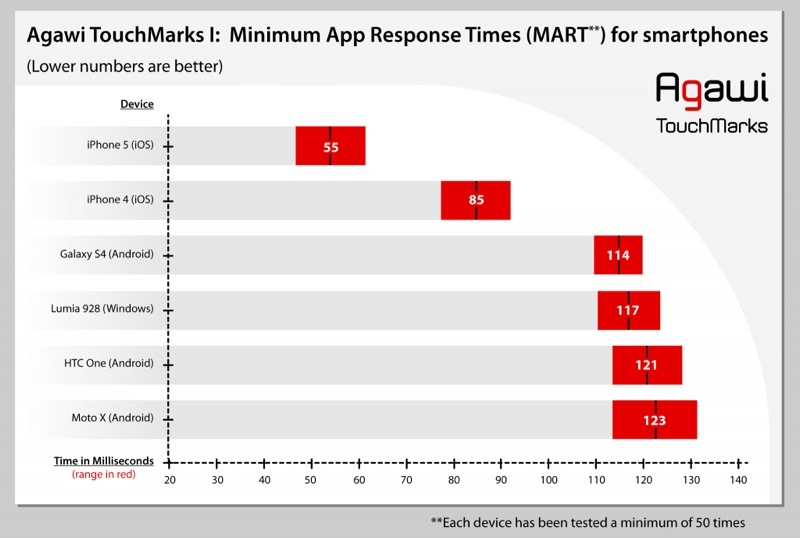Using a 240fps high frame rate camera along with a custom-built device called a Touchscope, Agawi measured the App Response Time (ART) of several different smartphones. The ART is the latency experienced between the time a user touches the device display to the device’s on-screen response.
Apple’s iPhone demonstrated a minimum app response time (MART) of 55 milliseconds, a much better performance than the Galaxy S4, which had a MART of 114ms. The Lumia 928 had a similar high MART time of 117ms, and the iPhone 5's closest competitor was the iPhone 4, with a MART of 85. The HTC One and the Moto X had the highest MART times, coming in at 121 and 123ms, respectively.

Relan, Agawi CEO, spoke to Venturebeat about the company's benchmarks.
"App responsiveness is judged by how quickly the app can respond to your inputs," said Rohan Relan, cofounder and CEO of Agawi. "Smartphones with touchscreens that have lower MART scores feel snappier. This is probably why, to many users, the iPhone keyboard feels more responsive than an Android phone keyboard."Microsoft has published a video that demonstrates how the differences between various touch screen response times translate into real world device experiences. As seen in the video, there is a noticeable difference between a 100ms latency time and a 50ms latency time.
Awagi speculates that Apple's touch screen hardware is better calibrated for capturing and processing touch than the Android and Windows devices that it was compared to. The company does note, however, that more comprehensive testing is required, and that coding differences may have slightly altered the results.
In the future, Agawi plans to develop additional TouchMark tests, releasing both the hardware and software behind the benchmarks so that its results can be replicated. The company also plans to test additional Apple devices, including the newly released iPhone 5s and iPhone 5c.
via MacRumors: Mac News and Rumors - All Stories http://www.macrumors.com





